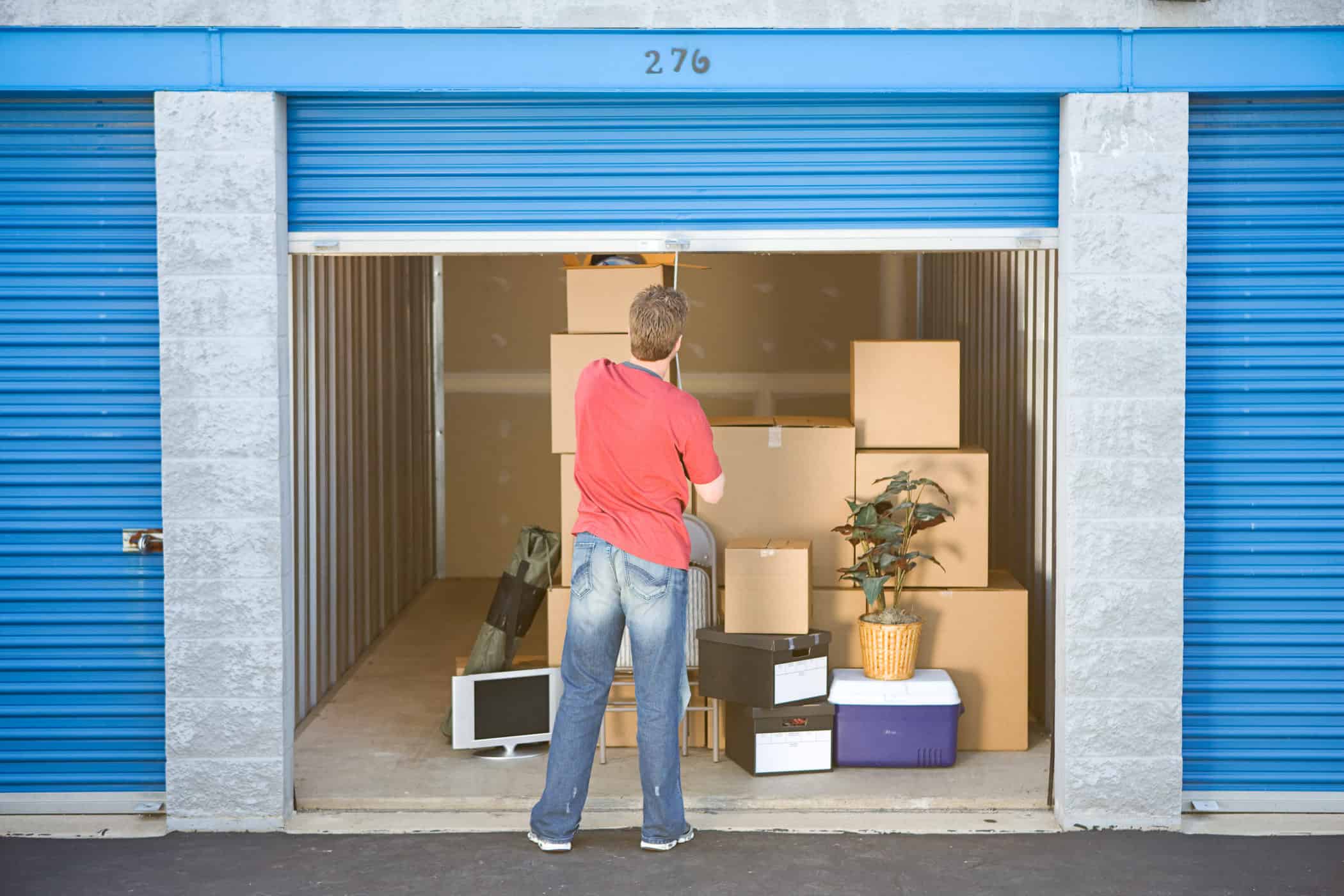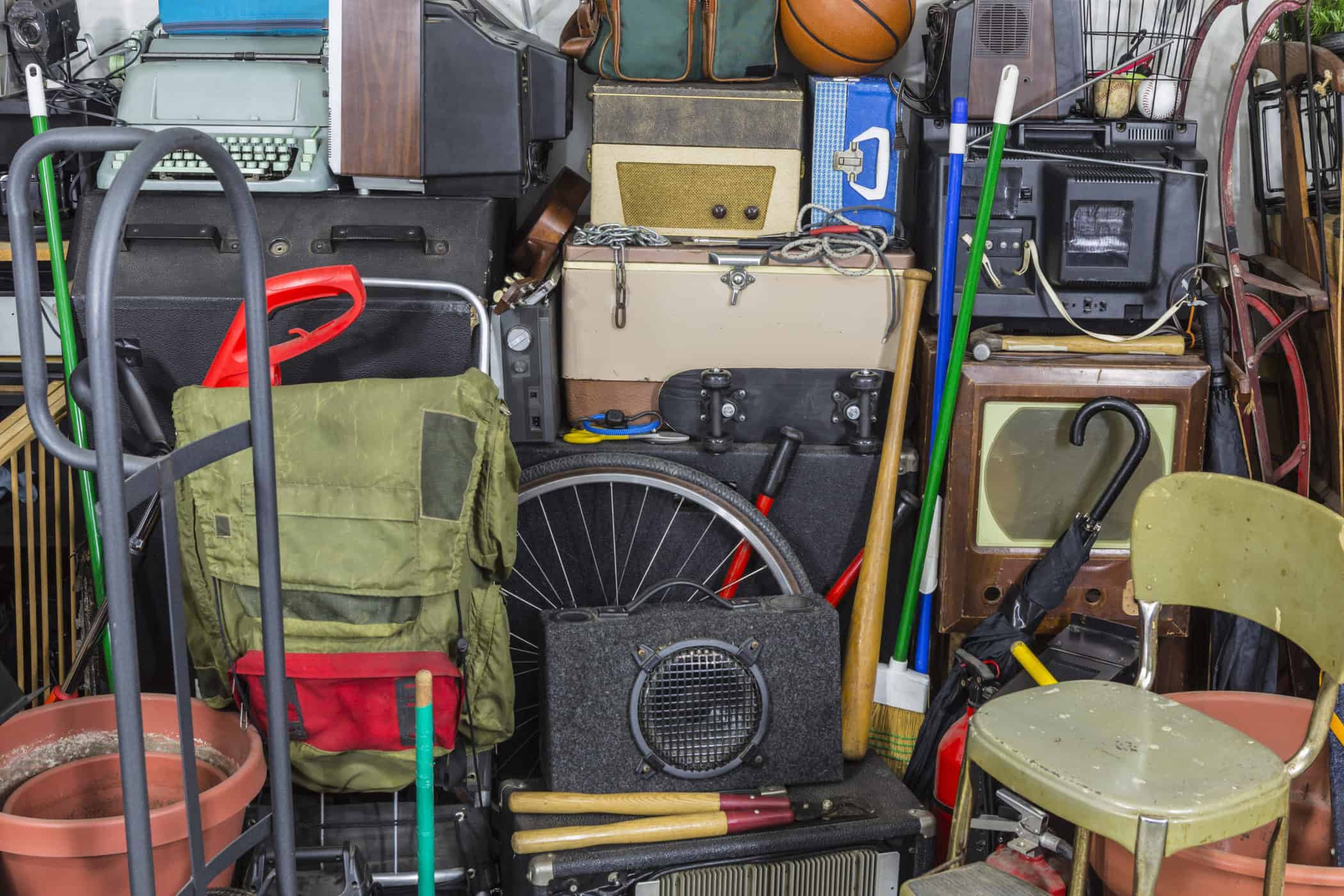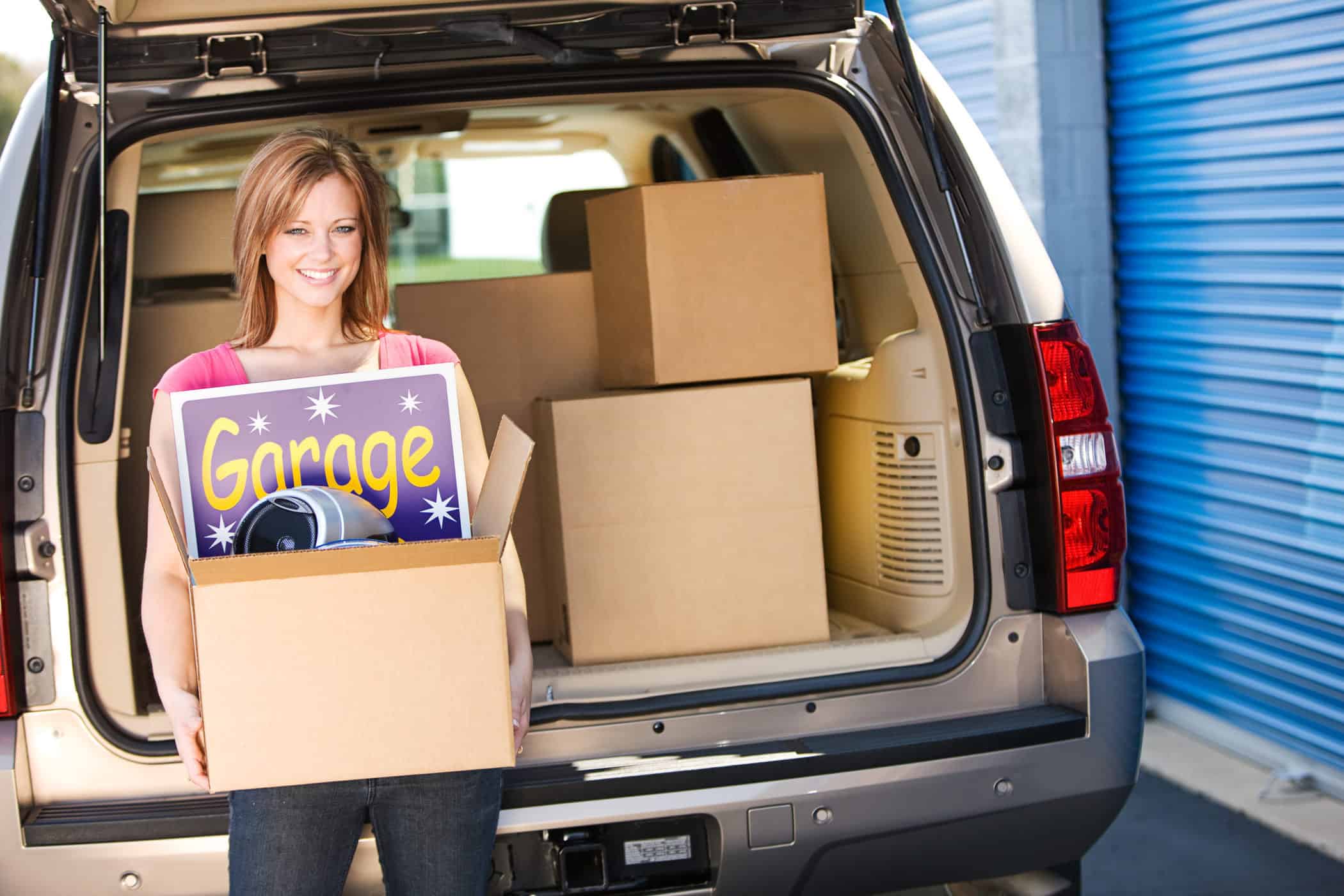
A self-storage unit can be a versatile thing. There are countless ways you can use it to your advantage. For example, you can store your overflow possessions while listing your home. You can stow seasonal items, like holiday decor or lawn tools. You might even store a car, motorcycle, or small boat.
But is there anything you’re not supposed to store in your storage unit? The short answer is yes. Certain items, such as hazardous materials, are prohibited. And other items, while allowable, may get ruined in self-storage.
The specific rules can vary by storage facility. When you rent a storage unit, be sure to review the rules and restrictions. Be clear about what items are banned from that unit. Make sure you follow up with the storage company if you have questions. Rule violations could get you kicked out of the unit!

What Not to Store in Self Storage Facilities
In this post, we’ll offer general guidelines. These are some items that are likely prohibited in your storage facility. And even if they aren’t, these are unwise items to place in self storage.
1) Hazardous materials
The first and most obvious item: Anything hazardous. That is, make sure you don’t store anything that easily catches fire or explodes. Gasoline is out of the question. So are last summer’s leftover fireworks. Propane, oil, grease, and chemicals are banned, too.
Toxic substances should also be left out of your storage unit. This includes fertilizer, asbestos, and biological waste.
2) Illegal substances
All storage units have clear policies against illegal substances. If you’re not supposed to have it, you’re not supposed to keep it in your storage unit. Enough said.
3) Unauthorized vehicles
In order to store a vehicle in your storage facility, the following conditions must be met:
⦁ The vehicle must be registered to the owner of the unit.
⦁ The vehicle must be fully operable.
⦁ The vehicle must be insured.
If your vehicle does meet these conditions, you’re welcome to store it. This goes for cars, motorcycles, boats, and RVs.
4) Weaponry
This is an example where you may experience deviation between storage units. In most storage units, firearms are disallowed. Ammunition is likely banned, as well. You can always check with your specific self-storage unit to verify this.
5) Perishable items
A good rule of thumb: Don’t store items that will go bad or attract bugs. This includes any perishable food items, like meat or vegetables. It also includes pet food items.
6) Any living organism
This might sound like a no-brainer. After all, you’ve likely never been tempted to live in a storage unit. But to be clear, taking up residence in your unit is not allowed. Storing pets is not allowed. Even storing plants is not allowed. If it’s alive, it shouldn’t take up residence in a storage unit.
7) Stolen items
This goes back to our earlier conversation about illegal substances. You’re not supposed to put anything into your unit unless you legally own it. If you keep hot property in your storage unit, that’s a major legal violation.
8) Scented items
Don’t store items that come with overwhelming odors or aromas. There is a simple reason for this. Scented items tend to attract bugs or other pests. That’s obviously something your storage company wants to avoid. And, if you do attract pests, they could ruin some of your other possessions. Steer clear of anything made to be aromatic.
9) Anything that’s wet or produces water
For similar reasons, storage companies don’t want you to keep wet or damp items in your storage unit. They, too, can attract pests. They also lead to problems with mold and mildew. You’re allowed to keep something like an old washing machine in your unit. However, it’s important to drain it beforehand. Same with freezers, fridges, etc.
10) Valuables
It’s generally unwise to put valuables in your storage unit. Most storage units will go out of their way to promote security. However, there’s no guarantee against loss or theft. If you have something that’s precious to you, you’re better off keeping it close by. This goes for jewelry, expensive works of art, etc

What CAN You Store in Your Storage Unit?
As you can see, there are a handful of restrictions on most storage units. Apart from the items on this list, you can put most things into storage.
What specifically can you place in your storage facility? When you rent a storage unit, you’re usually clear to include these items:
⦁ Seasonal items. These items might include wrapping paper, Halloween decor, etc. Just make sure you adhere to the rules above. So, no pumpkins or baked Christmas goodies!
⦁ Household items. Furniture and home decor items are fair game. Make sure not to stash household cleaning products.
⦁ Commercial goods. Office equipment can also be stored in your unit. Steer clear of food items from office lunches, but otherwise…
⦁ Electronic items. Electronics are fine, with two caveats. One, you may not want to use your unit for the priciest items. Also, electronics usually fare best in climate-controlled units.
⦁ Appliances. Feel free to stash your microwave or old coffee maker. The biggest caveat here is the one we mentioned earlier about moisture. Make certain you fully drain any items that hold water.
⦁ Appropriate vehicles. See above for what constitutes an appropriate vehicle. It must be operable and insured. And, it must be legally registered to you.
⦁ Clothing. There are a lot of questions about putting clothing into self-store units. While there aren’t rules against it, be aware of the risks of moths and pests. Most storage units will try to repel these critters. You can also play your part by not stashing food or scented items. Still, the possibility is going to be there.
These are just a few examples of what you can put into storage units.

Learn More About What to Put in Your Storage Space
As you consider what you’re allowed to put in your storage area, here are some final guidelines.
⦁ Remember that each storage business will have a unique set of rules. In this post, we’ve offered general guidelines. You’re wise to read up on unit-specific restrictions before you finalize the rental. Just be sure you have a clear sense of expectations.
⦁ When in doubt, err on the side of caution. For example, say you have an item that is valuable to you. You don’t think it will be damaged in the unit but aren’t positive. It may be better to hold off, at least until you have more information.
⦁ Remember that you play a part in keeping your storage space pet-free. Don’t bring food, including pet food. Also avoid items that are wet. Your storage provider will do their part, but much of this is up to you.
⦁ Speaking of food and other items, it’s also up to you to prevent mold and mildew. The rule of thumb here is to avoid items that are damp or moist. Again, the storage provider will help. But a lot of it comes down to you.
⦁ It’s not just important to know what you can and cannot put in your unit. Before choosing a space, be certain it has the square footage you need. This might mean measuring some of your bulkier items, including oversized pieces of furniture.
⦁ Another consideration is climate control. You may or may not need to opt for a climate-controlled storage space. It just depends on what plan to put inside. Again, advanced planning goes a long way.
⦁ Remember that you can reach out to your storage provider at any time. Most storage companies are happy to answer questions or provide guidance. Ask them for specific storage strategies or best practices.

Final Thoughts: Be Smart About Your Storage Solutions
A storage space can be incredibly helpful. You may find these spaces useful in different stages of life. One example is when you move. Another is if you have a child who goes to college and needs to stash their stuff temporarily.
It’s up to you to make smart decisions about just how your storage space is used. That means knowing the rules of your unit. And, it means taking a common-sense approach to what you place inside. Hopefully, the guidelines we’ve listed here will point you in the right direction.
With any additional questions, reach out to your self-store company. Let them know you want to use the space as responsibly as you can!
(Rights reserved)
What Our Customers Say About Us
Smith Valley Storage
1614 Smith Valley Road, Greenwood, IN 46142
317-882-7361
[email protected]
